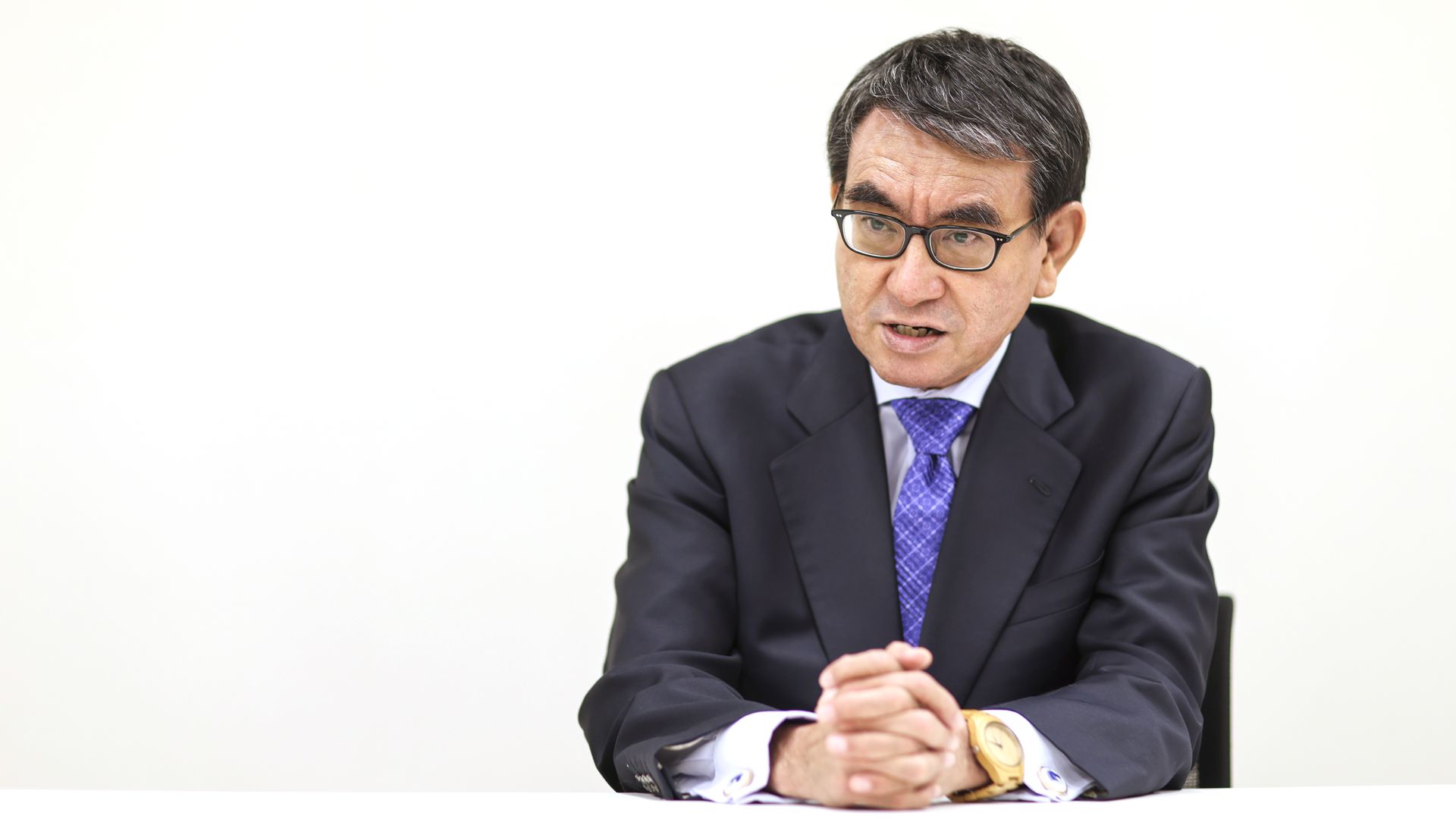Bethany Allen-Ebrahimian
 The global community should create a "United Nations charter 2.0" in which no country has a veto, former Japanese Defense Minister Taro Kono said at a conference in Taipei last week.
The global community should create a "United Nations charter 2.0" in which no country has a veto, former Japanese Defense Minister Taro Kono said at a conference in Taipei last week.Why it matters: Calling for a UN alternative was once a fringe idea but has edged towards more mainstream debate since Russia used its Security Council veto to block action against its invasion of Ukraine in February.
What he's saying: "As long as dictators have a seat in the Security Council with a veto, we cannot take actions against aggression by dictators," said Kono, who first served as foreign minister and later as defense minister under former Prime Minister Shinzo Abe."The United Nations may continue to function as a token forum, but we need a system in which the global community could take collective actions such as establishing a global peacekeeping operation," he said.
Kono said that nations should adopt a new charter that would supersede the existing UN charter and establish a body in which no single government has veto power.
He gave the remarks virtually at the Ketagalan Forum Indo-Pacific Security Dialogue, cohosted annually by Taiwan's ministry of foreign affairs and the Taipei-based think tank Prospect Foundation.
The big picture: Both China and Russia have drawn recent attention to the UN's limitations by working to undermine its mechanisms that support human rights and liberal political values.Beijing and Moscow are "hostile to the defining principles of the UN including the Universal Declaration of Human Rights' assertion of the autonomy and freedom of citizens, the principle of the self-determination of peoples, and the inviolable sovereignty of nations," said Charles Burton, a senior fellow at the Macdonald-Laurier Institute in Canada.
Both countries have used their veto power to prevent the UN from supporting peace and justice, Burton told Axios.
But the current National Security Council structure means that any attempt to change the structure of the UN or the council itself in ways that would reduce the power of the five current permanent members would likely be blocked, making meaningful reform virtually impossible.
A growing number of people believe it may not be a fixable problem, given the UN's structure.The organization is suffering a "fundamental normative breakdown that feels pretty unreconcilable," Kelley Currie, who previously served as U.S. representative to the UN Economic and Social Council, told Axios.
Yes, but: The UN works well for some countries, Currie said, depending on their goals."For many countries, the UN seems not so bad — as long as they can advance their pet issues and get support from the secretariat, agencies, funds and programs, and as long as that is all they need, they are fine," she said.
No comments:
Post a Comment